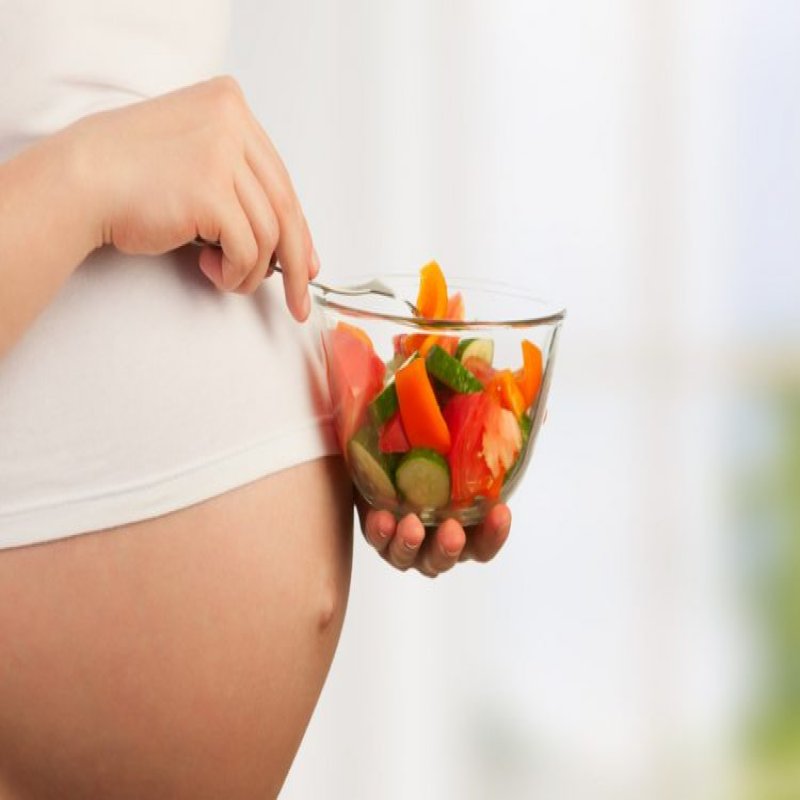
Pregnancy is one of the most emotional and deeply personal journeys a woman embarks on. As a miracle unfurls inside you in these nine months, your body evolves, and so do your body’s dietary requirements! Here we’ve highlighted the 4 vitamins your body needs during pregnancy to give your baby the best start in life.
Vitamin D
Vitamin D plays an essential role in building bones and protecting the immune system for you and your baby. Low levels of vitamin D increase the risk of cesarean delivery, preeclampsia, preterm delivery, postpartum depression, and gestational diabetes for pregnant moms. It also results in weak bones, seizures, respiratory infections, and brain disorders in babies.

The recommended intake of vitamin D is 15 micrograms per day. It is important to eat vitamin D–rich foods during pregnancy, along with adequate exposure to sunlight. Vitamin D also helps in effectively absorbing the calcium from the foods you eat. You can take a morning stroll daily to fulfill the vitamin D needs of your body.
Vitamin A
Vitamin A is necessary during pregnancy because of its key role in developing vision and building healthy cells in your baby. It is sufficiently available through the foods you eat, and no extra supplementation or diet is required. But too much vitamin A in the diet can be a problem. Certain studies have connected high levels of vitamin A to birth defects. Make sure you check the levels of vitamin A in your supplements or prenatal vitamins to avoid overdosing.

The recommended intake of vitamin A is 800 micrograms per day. Vitamin A-rich sources include carrots, sweet potatoes, green leafy vegetables, squash, bell peppers, tomatoes, and liver.
Folic Acid
A low folic acid (or folate) status in the early stages of pregnancy increases the risk of neural tube defects (NTDs) in the baby. NTDs are a group of serious birth defects that affect the developing nervous system. The precise cause of NTD is still unknown. However, taking folic acid supplements or having a varied diet that contains plenty of folates before and during the first 12 weeks of pregnancy can reduce the risk of NTDs for your little one.

The recommended folate intake through diet is 500 micrograms per day. Some sources of folate-rich foods are oranges, berries, green leafy vegetables, beetroot, beans, and brown bread.
Choline
Although you might not be so familiar with it, choline is important for your little one. Choline is neither a vitamin nor a mineral. However, it is often grouped with the B vitamins due to their similar structure and properties. Studies suggest that it works along with folate to ensure the proper development of the neural tube and the central nervous system. It also plays a key role in developing the hippocampus, which is the memory centre of the brain. So, to ensure healthy brain development and a good memory for your baby, make sure you include plenty of choline in your diet.

The recommended intake of choline is 425 milligrams per day. Eggs are one of the best sources of choline. Some other sources include meats such as beef, poultry, pork, and fish. It is also present in vegetarian sources such as wheat germ, cauliflower, broccoli, potatoes, and nuts (especially pistachios).
Click here to learn more about the importance of nutrients for pregnant ladies!
Thus, along with the carbs, fats, and proteins, you should also keep track of the vitamins you consume during pregnancy. They have an equally important role in the proper development and growth of your baby. Other vitamins should also be a part of your pregnancy diet, as variety is the key to a healthy pregnancy. Additional supplements or prenatal vitamins might be required in some cases to meet the daily nutritional requirements of the body. Consult a health expert for your individual needs.


.png)


